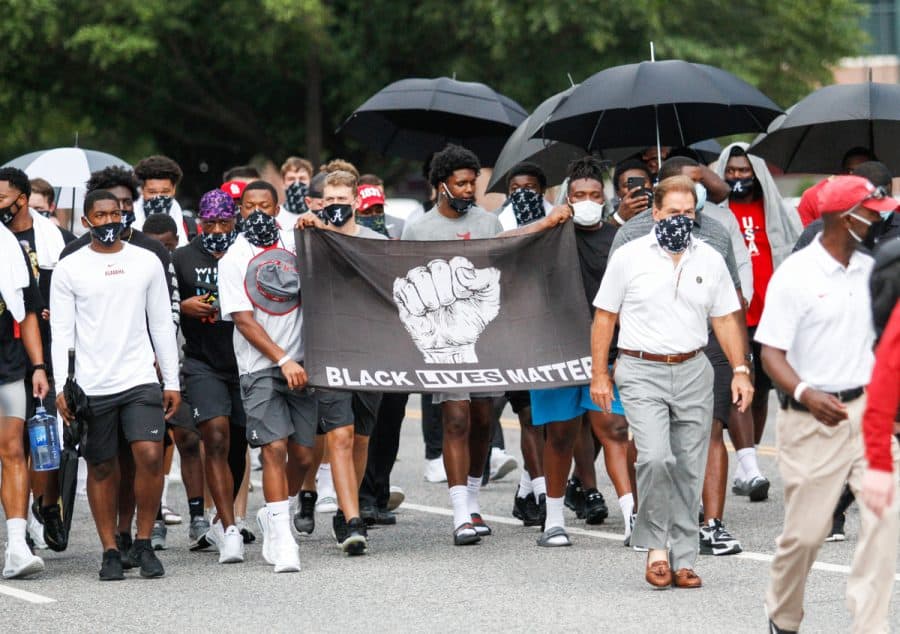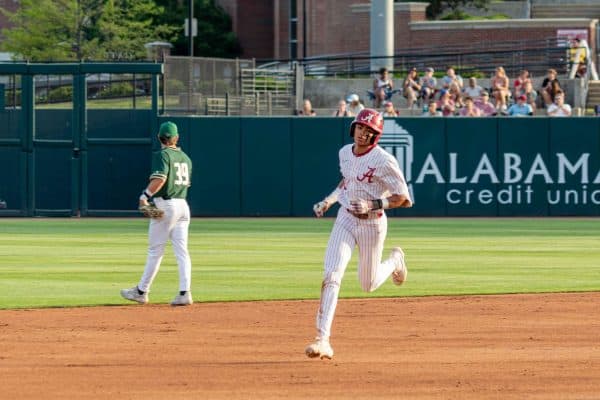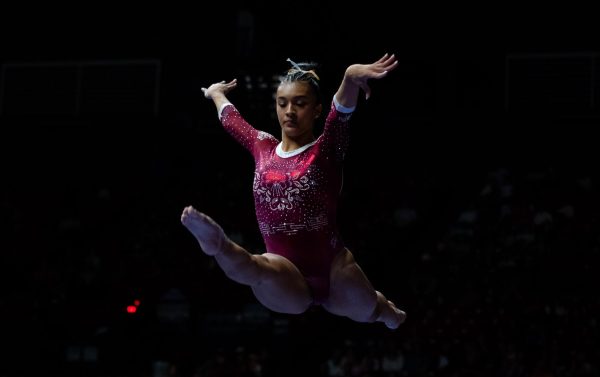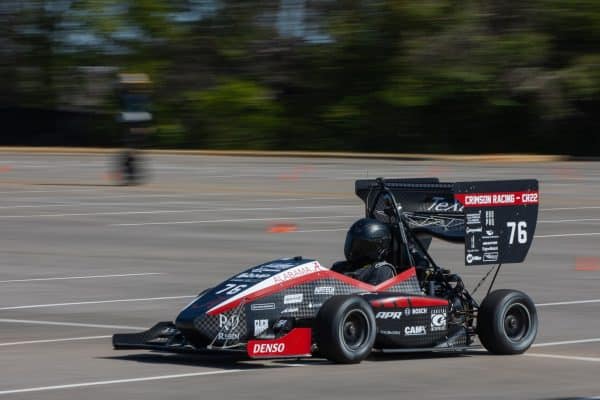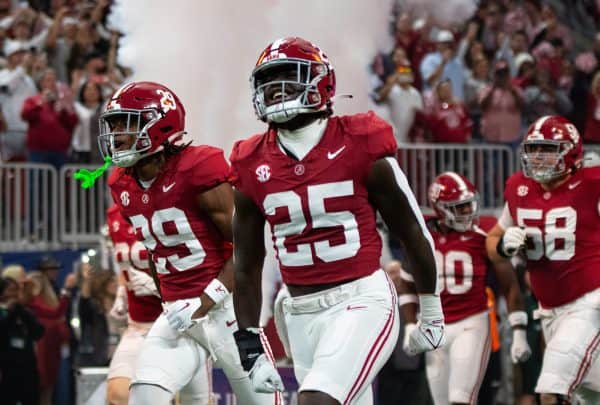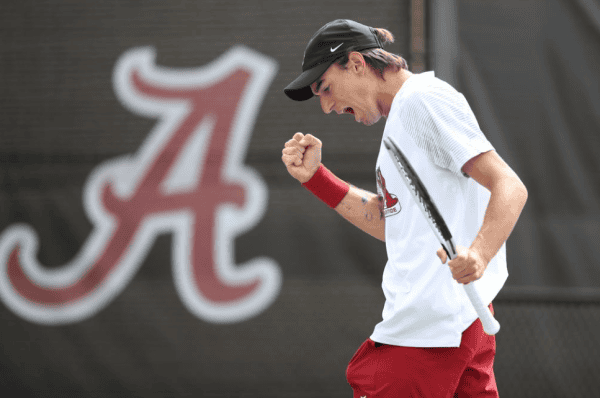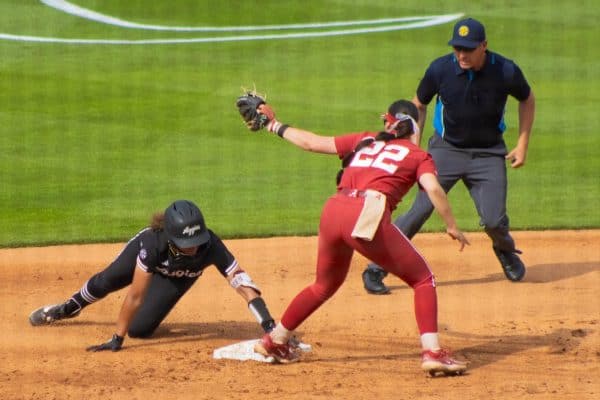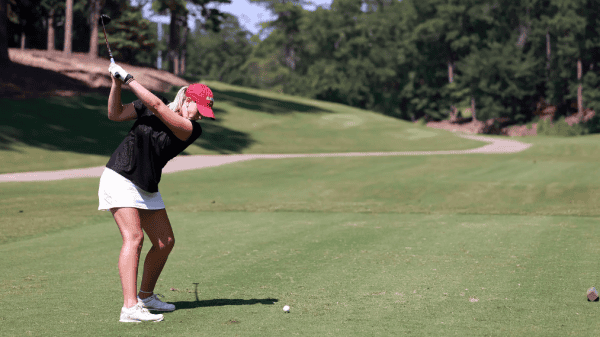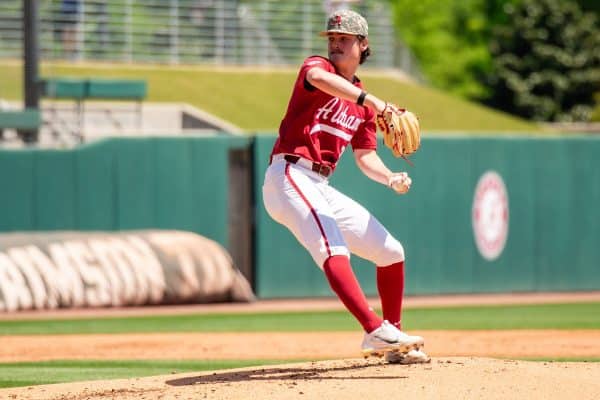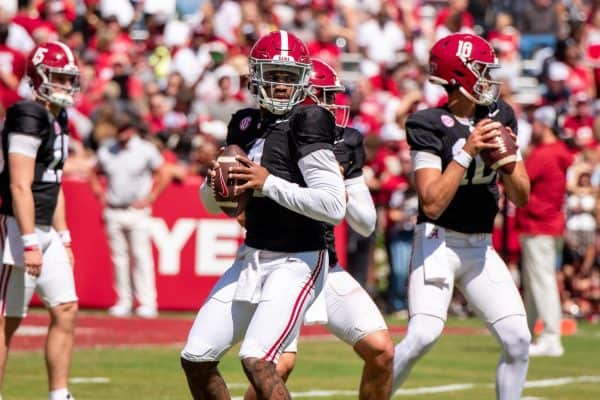Top athletes can be activists through NIL
Hundreds of UA student-athletes protested police brutality on Aug. 31, 2020.
February 2, 2022
A couple years ago, name, image and likeness was a term only a few college athletes knew. Now, the world of college sports — fans, athletes and coaches alike — knows about NIL, and it’s here to stay.
On June 21, 2021, the U.S. Supreme Court ruled against the NCAA in NCAA v. Alston. The court upheld the ruling made by the U.S. Court of Appeals in the Ninth Circuit.
“The NCAA has long restricted the compensation and benefits that student athletes may receive,” Supreme Court Justice Brett Kavanaugh wrote in the concurring opinion. “With surprising success, the NCAA has long shielded its compensation rules from ordinary antitrust scrutiny. Today, however, the court holds that the NCAA has violated antitrust laws. The Court’s decision marks an important and overdue course correction.”
Along with the federal pressure, states across the U.S. were drafting NIL laws to put in place in early July. The NCAA had to take action, and quickly.
On June 30, 2021, the NCAA Board of Directors voted to lift restrictions on student-athletes and their names. On July 1, 2021, several states signed NIL bills into law. For the first time, college athletes could profit off their names and images.
The Supreme Court’s ruling has been heralded by many as a great step in changing college athletics. After years of activism, students will now be rewarded for their immense efforts.
But is this the end?
“I do think that name, image and likeness has been a very positive benefit for college athletes,” said Katie Lever, a doctoral student studying issues within the NCAA at the University of Texas at Austin. “It’s not the end all, be all of college sports reform.”
For years, the NCAA earned billions of dollars for several college sports while forbidding athletes to make money, host camps and clinics, appear in commercials or sign endorsements. The NCAA also punished athletes for promoting small businesses, raising money for healthcare and accepting offers of free goods.
Student-athletes have consistently pushed back and, in 2020, took their protests to new heights. With the power of social media, student-athletes across the country spoke about the racial, physical and mental abuse they endured while the schools they competed for profited off their names. The NCAA could no longer say that college athletes aren’t university employees, and fans began calling for change.
The paternal grip of the NCAA was loosening, but the NCAA still had something that the student-athletes didn’t: financial stability.
“Most of these NIL deals are averaging in maybe the hundreds-of-dollars range,” Lever said. “So, it’s not providing athletes with the stability to be able to speak out on some controversial topics that they were speaking out against in the summer of 2020.”
Top collegiate athletes are signing brand deals that allow them to earn six figures. University of Connecticut women’s basketball player Paige Bueckers signed a multimillion dollar deal with Nike. Alabama quarterback Bryce Young has appeared in commercials for CashApp. Alabama softball fans can purchase pitcher Montana Fouts’ “Throw Like a Girl” merchandise at BamaStuff.
But not all college athletes are enjoying the same benefits.
Along with a limited amount of money, it’s still relatively easy to censor an athlete for speaking out. Most college athletes attend school on a scholarship. A coach can decide to revoke a scholarship if a college athlete speaks out about a cause the coach deems controversial.
The NCAA still has firm control over the actions and movements college athletes can pursue. A practice that has allowed the NCAA to maintain control over college athletes has just taken a new form.
Image is much more than one’s physical appearance. Most brands value the words and actions of athletes now more than ever. Major companies also try to support social causes athletes are speaking out about.
In March 2021, several college athletes considered a strike from the March Madness tournament. The National College Players Association partnered with the group of athletes and demanded the NCAA give athletes a list of their rights.
“The only thing that was missing from that was an ultimatum,” Lever said. “That’s really the missing piece here. The NCAA does have a lot of infrastructure, but it’s a pretty shaky foundation.”
Despite limited funds and pressure from athletic programs, social media and brand deals may be the way college athletes can create change in the NCAA. Platforms like Twitter, Instagram and TikTok allow fans to see college athletes in a way they haven’t before.
“Historically, the idea of one’s likeness — a brand — utilizing you to sell their product wasn’t all that common for us [regular people] because it’s more interesting for brands to want to use our images,” said A.J. Bauer, associate professor of journalism and creative media at The University of Alabama.
College athletes don’t have to be stars to participate in activism. Social media allows college athletes to raise awareness for a cause with a simple video or a post. Athletes have also used creative outlets such as art and fashion to grow their brand.
These actions can change the narrative around college athletes’ issues in the U.S.
“The issues around NIL are a labor issue,” Bauer said. “This is about these students not as students actually but as workers and people who produce quite a bit of value and profit for quite a few people.”
College athlete activism may be less prominent than it was in 2020, but NIL creates a space for it to exist.
“A lot of this has to do with the organization really, truly partnering with the athlete, making it customizable and making sure that the athlete is accommodated and can use his or her platform as best as they possibly can,” Lever said.
This story was published in the Justice Edition. View the complete issue here.
Questions? Email the Sports desk at [email protected].

